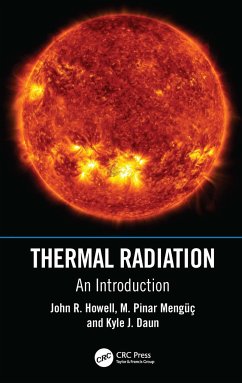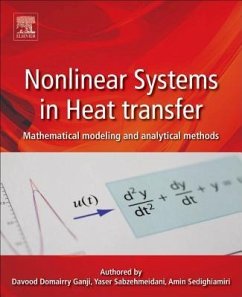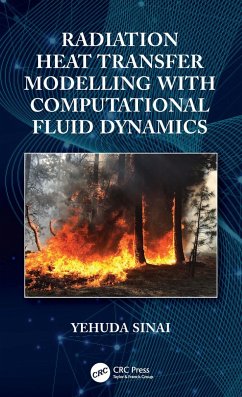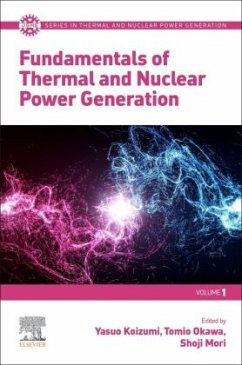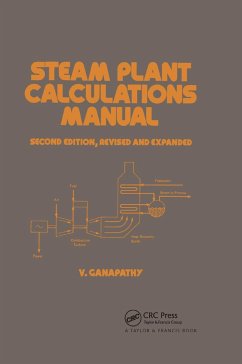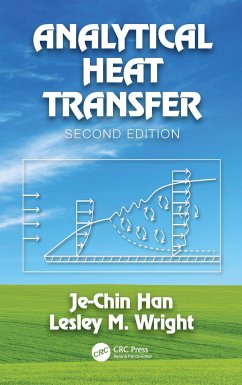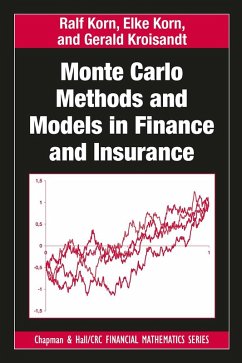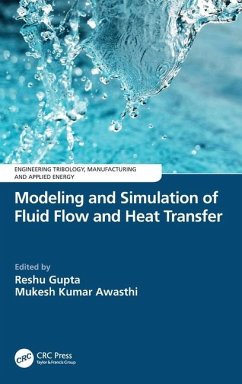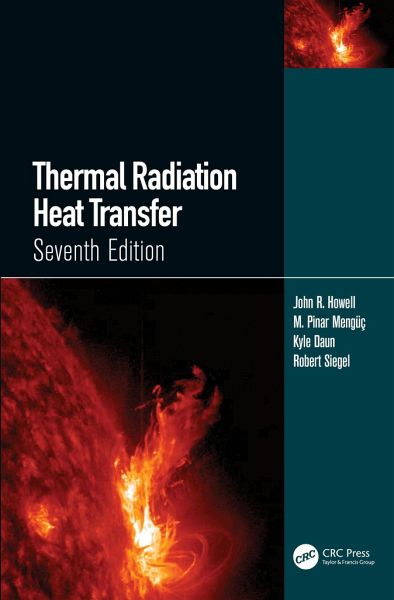
Thermal Radiation Heat Transfer
Versandkostenfrei!
Versandfertig in 6-10 Tagen
150,99 €
inkl. MwSt.
Weitere Ausgaben:

PAYBACK Punkte
75 °P sammeln!
The seventh edition of this classic text outlines the fundamental physical principles of thermal radiation, as well as analytical and numerical techniques for quantifying radiative transfer between surfaces and within participating media. The textbook includes newly expanded sections on surface properties, electromagnetic theory, scattering and absorption of particles, and near-field radiative transfer, and emphasizes the broader connections to thermodynamic principles. Sections on inverse analysis and Monte Carlo methods have been enhanced and updated to reflect current research developments,...
The seventh edition of this classic text outlines the fundamental physical principles of thermal radiation, as well as analytical and numerical techniques for quantifying radiative transfer between surfaces and within participating media. The textbook includes newly expanded sections on surface properties, electromagnetic theory, scattering and absorption of particles, and near-field radiative transfer, and emphasizes the broader connections to thermodynamic principles. Sections on inverse analysis and Monte Carlo methods have been enhanced and updated to reflect current research developments, along with new material on manufacturing, renewable energy, climate change, building energy efficiency, and biomedical applications.
Features:
Offers full treatment of radiative transfer and radiation exchange in enclosures.
Covers properties of surfaces and gaseous media, and radiative transfer equation development and solutions.
Includes expanded coverage of inverse methods, electromagnetic theory, Monte Carlo methods, and scattering and absorption by particles.
Features expanded coverage of near-field radiative transfer theory and applications.
Discusses electromagnetic wave theory and how it is applied to thermal radiation transfer.
This textbook is ideal for Professors and students involved in first-year or advanced graduate courses/modules in Radiative Heat Transfer in engineering programs. In addition, professional engineers, scientists and researchers working in heat transfer, energy engineering, aerospace and nuclear technology will find this an invaluable professional resource.
Over 350 surface configuration factors are available online, many with online calculation capability. Online appendices provide information on related areas such as combustion, radiation in porous media, numerical methods, and biographies of important figures in the history of the field. A Solutions Manual is available for instructors adopting the text.
Features:
Offers full treatment of radiative transfer and radiation exchange in enclosures.
Covers properties of surfaces and gaseous media, and radiative transfer equation development and solutions.
Includes expanded coverage of inverse methods, electromagnetic theory, Monte Carlo methods, and scattering and absorption by particles.
Features expanded coverage of near-field radiative transfer theory and applications.
Discusses electromagnetic wave theory and how it is applied to thermal radiation transfer.
This textbook is ideal for Professors and students involved in first-year or advanced graduate courses/modules in Radiative Heat Transfer in engineering programs. In addition, professional engineers, scientists and researchers working in heat transfer, energy engineering, aerospace and nuclear technology will find this an invaluable professional resource.
Over 350 surface configuration factors are available online, many with online calculation capability. Online appendices provide information on related areas such as combustion, radiation in porous media, numerical methods, and biographies of important figures in the history of the field. A Solutions Manual is available for instructors adopting the text.




